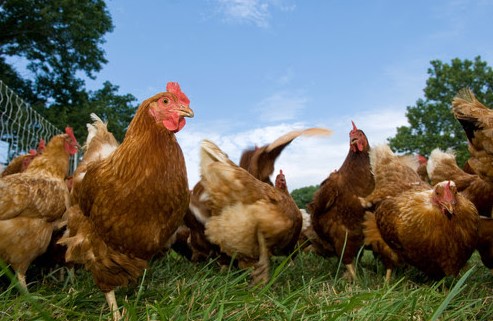Poultry Virus Confirmed in State Bordering Missouri

Missouri poultry producers, both commercial and backyard flocks, are encouraged to review and tighten biosecurity protocols in light of the avian influenza virus confirmation in birds east of the Mississippi River.
Highly pathogenic avian influenza H5N1 is known to be deadly for domesticated chickens and turkeys. Avian influenza was confirmed in a commercial chicken operation in Kentucky earlier this week. Commercial flocks in Indiana have also been impacted.
The first detection of highly pathogenic avian influenza in the United States was found in wild birds through routine surveillance conducted by USDA-APHIS Wildlife Services in states in the eastern U.S. The influenza has been confirmed in wild birds in New Hampshire, Delaware, North Carolina, South Carolina, Florida and Maryland. H5N1 was also detected in a backyard flock of mixed poultry in Virginia.
“It is extremely important that poultry producers practice biosecurity measures and be vigilant to protect the health of their flocks,” said Missouri State Veterinarian Steve Strubberg. “Commercial and backyard producers should take extra precautions and pay close attention to their flocks.”
Know the symptoms:
- Decrease in water and feed consumption
- Quietness among the flock
- Decrease in egg production
- Sudden increase in death in the flock
Prevention Measures:
- Prevent contact with wild birds, especially wild waterfowl
- Restrict visitor access to your birds
- Limit food and water sources that would attract wild birds
- Clean and disinfect all wheels on vehicles, wagons and trailers visiting an area or a farm where poultry is located
- Clean and disinfect any equipment, including cages/coops, that was borrowed from or loaned to another producer
If you notice any symptoms in your flock, you are encouraged to contact your local veterinarian or the Missouri Department of Agriculture Animal Health Division at (573) 751-3377.
Avian influenza does not present a food safety risk. Poultry and eggs are safe to eat when handled and cooked properly. Though extremely rare, avian influenza can be transmitted to humans. However, no human cases of H5N1 have been detected in the United States. Poultry producers should practice good hygiene and handwashing after contact with their birds.
For more information about the Missouri Department of Agriculture and its programs, visit the Department online at Agriculture.Mo.Gov.


